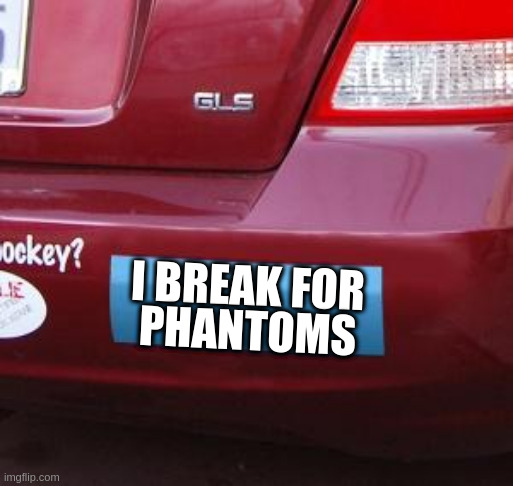That is how the English language works. The word phantom means not real. So if later you discover or realize there was a valid and good reason for the braking - by definition, it wasn't phantom. I had one of those with a deer the first week I owned the car. I couldn't see why the car stopped and thought it was a phantom braking event, until the deer stepped out of the weeds, walked up the center of the road to the car, looked into the headlights awhile, then turned around and walked down the road. The car followed it carefully about 50 feet behind until it turned off the road, then the car resumed its former speed. I was really impressed.
Then there are all those braking events for things that are real, but not dangerous, like highway heat mirages, shadows, skid marks, etc., which are very real things, but should not have caused braking. These are the ones that a lot of people complain about and are a tad unsafe, but truthfully, rear end collisions are almost always the fault of the follower, following too closely and / or not paying attention;
and these should not be called phantom because there was a real cause that was misunderstood and the car incorrectly responded inappropriately.
Road rage being what it is, phantom braking being mistaken for brake checking by a driver, is probably a larger problem than the phantom braking itself. And true or perceived phantom braking makes the driver and passengers believe the car is incompetent and dangerous. Which is surely a problem for Tesla, but should be way down the list of things to worry about.
Suddenly taking the wrong exit, diving over three lanes for the most right hand lane, so it can then wrongly whip a left turn into an oncoming one way road, slamming on the brakes and sliding to a dead halt across a traffic lane on a high speed highway, carefully stopping for a dozen red lights, then blazing through one at 70 mph etc., come to mind.




